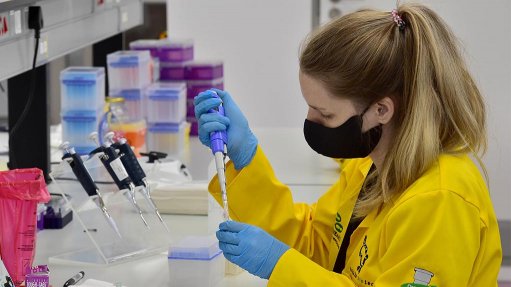
Before monkeypox announced its silent but far-reaching arrival in Europe and the US, nobody seemed to care, because it was confined to Africa where it is endemic, say experts.
Global public health partners did not give it much attention to the point that it became one of the "neglected" tropical diseases.
Some health experts said the potential of what was happening now was evident as recently as five years ago, as the disease left its endemic zone.
"It turns out that monkeypox emerged out of its Central African endemic zone into West Africa in 2017, five years ago, and the outbreak has been ongoing for five years with no urgency, no response, no World Health Organisation (WHO) engagement around vaccines in those countries," Professor Chris Beyrer from Johns Hopkins University said in his address at the International Aids Conference in Montreal, Canada on Saturday.
The WHO added neglected tropical diseases (NTDs) were those mainly prevalent in tropical areas, where they mostly affect impoverished communities and disproportionately affect women and children.
These diseases cause devastating health, social and economic consequences.
The WHO added the epidemiology of NTDs was complex and often related to environmental conditions.
Many of them are vector-borne, have animal reservoirs, and are associated with complex life cycles. All these factors make their public-health control challenging.
Monkeypox was first identified in humans in 1970 in the Democratic Republic of the Congo (DRC) in a nine-month-old boy, in a region where smallpox had been eliminated in 1968.
Since then there have been sporadic cases in the Congo Basin - home to some of the largest tropical rainforests in the world, as well as in Benin, Cameroon, the Central African Republic, Gabon, Cote d'Ivoire, Liberia, Nigeria, Republic of the Congo, Sierra Leone, and South Sudan.
"We have been working on monkeypox in Africa for several years, but nobody was interested," said WHO assistant director-general for emergencies, Ibrahima Soce Fall.
He added that once monkeypox was detected on other continents, "the world reacted".
"It was the same with the Zika virus and we have to stop this discrimination," said Fall.
Zika is a disease caused by a virus transmitted primarily by Aedes mosquitoes, which bite during the day.
Since its discovery in Uganda and Tanzania in 1952, it has spread to the Americas and Asia too.
Of the new monkeypox cases, the US has seen the most rapid spread outside of Africa. With the disease declared an international health emergency, it meant resources would be channelled towards fighting it.
But WHO experts warned Africa should not be left behind.
"It is important, and we have already been doing so, to accelerate the research and development agenda on monkeypox so that the most affected African countries can have the resources to prevent and fight against monkeypox," Fall said.
A monkeypox vaccine has been available since 2019, but the demand has surged since global cases breached the 20 000 mark.
Reports said about 16.4-million vaccines were currently available and 35 countries were pushing for access to them.
But there are fears of a repeat of what happened with Covid-19 vaccines, where vaccine nationalism and politics took centre stage.
"If we only treat what is happening in Europe and America, we will only treat the symptoms of monkeypox, but not the real disease. It is important that the world gets mobilised to this kind of disease," added Fall.
He said the world had been presented with the best opportunity to help Africa tackle monkeypox.
"I think it is time that the world invests so that these populations that are living in rural areas and in forest areas, can be protected," Fall added.
Addressing the International Aids Conference in Montreal, Canada, WHO director of Global HIV, Hepatitis and Sexually Transmitted Infections Programmes, Dr Meg Doherty, said there should be no solution for monkeypox that excluded Africa.
"We can't have a monkeypox response that's only responding to the UK, Canada, and the United States. We need a response that also addresses what's happening in the DRC right now and Nigeria, where cases are going up," she added.